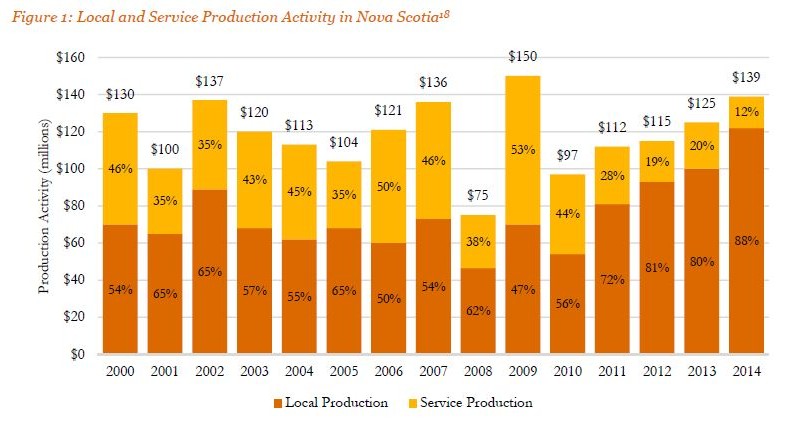Marc Almon – The Happy Warrior of #NSFilmJobs
I first met Marc Almon back in 1998 when he was the proverbial bright-eyed and bushy-tailed president of the Kings College Independent Film Society and I was the Program Administrator for the Nova Scotia Film Development Corporation. Marc had applied for a small operating grant for the society, and while I was inclined to recommend it my boss was less enthusiastic. So I arranged a meeting in which I asked Marc to basically tell me how he wanted me to sell the proposal to my superiors. I left that meeting thinking this was a kid who was going to be a successful film producer someday if he pursued it as a career, because he was passionate and because he was a natural at making the best case for why he and his group deserved the money. Needless to say, they got their grant, and when I attended their annual screening of the short films they made with it some months later, I wasn’t surprised in the least that Marc and KIFS had managed to pack the Rebecca Cohn Auditorium.
As it turns out, Marc did indeed pursue a career in filmmaking, and by 2015 had emerged as one of the top up-and-coming young film producers in Canada. He produced the critically-acclaimed and award-winning feature film Blackbird by director Jason Buxton, and had a number of other projects in development.
And then all hell broke loose in April, 2015, when the Liberal government of Stephen McNeil released a budget that contained massive cuts to the Nova Scotia film industry, including the closing down of Film and Creative Industries Nova Scotia and the slashing of the film tax credit to levels that were simply unworkable for producers. As the chairperson of the fledgling industry association Screen Nova Scotia, Marc was thrust into the spotlight for all the wrong reasons, as he led the fight to save the film industry from complete disaster even as he tried to keep his business going and get his own productions financed in a world where the old financing model no longer existed.
It’s a testament to Marc’s ability as both a producer and a leader that he managed to succeed in both tasks. While the film industry in Nova Scotia isn’t what it was prior to the Liberal cuts, it also isn’t gone altogether, and that’s due to the efforts of Marc and his colleagues at Screen Nova Scotia. In terms of his own business, Marc managed to recover from the setback of last April and found a way to pull together the financing to get the feature film Nineteenseventysomething made, directed by Bruce McDonald and written by Daniel MacIvor (the film is currently in post-production, and Marc plans to debut it at this year’s Atlantic Film Festival).
Marc’s term as chairperson of Screen Nova Scotia came to an end last month, so I thought it would be a good time to sit down with him and reflect upon the hectic events of the past couple of years. Here is that conversation.
Read more






